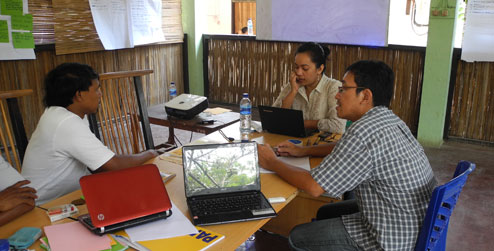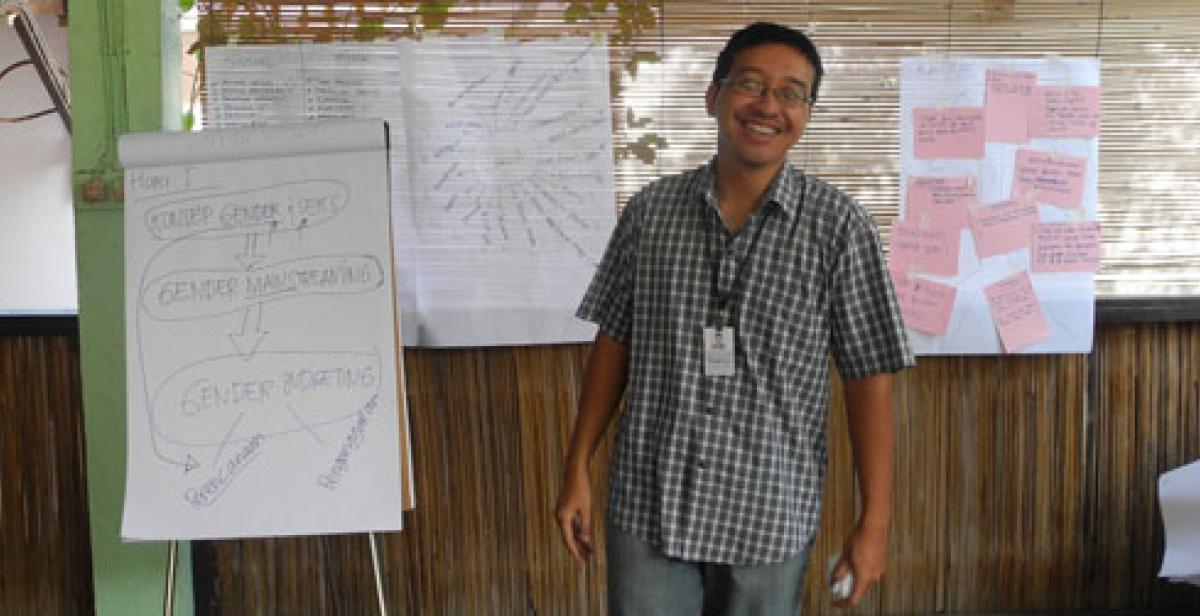Since arriving in Dili, Timor-Leste, I have been puzzled to hear the frequent bang and fizzle of fireworks, even during the daytime. However, as the buildings started to don the red, black, yellow and white of the Timorese flag and street sellers began offering all sorts of patriotic merchandise, it became clear that the country was simply preparing for a significant national holiday.
The struggle for independence
Wednesday 28 November marks the unilateral declaration of Timor-Leste's independence from Portugal in 1975, ending a period of over 200 years of colonial rule. The country's ability to seek and assert its independence was a significant step forward; yet the new-found optimism was abruptly interrupted only a few days later when neighbouring Indonesia invaded on 7 December. Subsequent atrocities punctuated a gruelling 24 years of illegal occupation until Timor-Leste's reassertion of independence in 1999.
Mindful of such important dates etched on the national memory, I spoke to Darmawan , one of our Development Workers currently supporting Progressio partner Mata Dalan Institute (MDI) in Dili. As an Indonesian national, he explained his reasons for working in Timor-Leste, what he hopes to achieve in doing so, and the significance of his nationality in the country today.
Personal redemption
"I've been working for civil society in Indonesia since 1998 in many development issues like poverty reduction, social policy reforms and sustainable development. I thought working for Progressio would be good for me; to work in other countries and have international experience in other contexts than Indonesia.
"Timor-Leste has some meaning for me, specifically for Indonesians who have a long history with Timor-Leste - my generation has some emotional ties with this country. I think our government in the past did many wrongs to the people here, so I always feel that maybe I can do something - some kind of redemption for the people here. Personally, it's like a personal redemption.
"After we separated, after they (Timor-Leste) took their own path, they could really develop the country. When they (Indonesia) decided to give the government this opportunity, I was one of the few to support the decision. Indonesia has no business here; the occupation was a big, big mistake. I hope for one year or two years I can do some good for the people here."
Setting the record straight
"When I told my friends that I would go to Timor-Leste, most of them were surprised because I had just finished my studies in the United States.The norm is that when you have completed your degree abroad you go back and make some money! What I sense is that for most Indonesians, Timor-Leste still has a negative image; it's underdeveloped, not safe, and some of the older generations cannot forgive the independence of Timor-Leste. So these are also things that I need to do when I finish my work here - to tell them about Timor-Leste. It's still not as good as Indonesia, but it's better than you would think.
"Most of my friends worry that Timorese people have hard feelings for people of Indonesia but I don't find them strongly; maybe in the eastern part of the country, but in Dili people differentiate between Indonesian people and the military authoritarian regime behind occupation. So they welcome people here."

Finding common ground
MDI, a local organisation that was active at the time of occupation, works on governance issues including improving transparency and accountability in government policies and budgets whilst also ensuring the participation of communities in development processes that affect them. Darmawan has been supporting the partner for just under a year, assisting the creation of a strategic plan, strengthening financial and internal management systems, helping to build better advocacy and monitoring practices, and looking to improve prospects for financial sustainability into the future.
"I try to build their capacity as a team," he says. "I'm also trying to build their support network because I know that I'm not staying here forever, so when I leave I have to make sure that they have the support system that they need. So I try to broaden their network and bring the expertise of other people. I often use my network in Indonesia to bring experience from Indonesia to Timor-Leste. Although the context is different, they have ties."
Moving forward
Looking ahead to prepare his partner organisation for the time after his departure is not only an important component of Darmawan's role, but also part of his own philosophy for the country's future. Just as the government advocates its current 'strapline' of 'goodbye conflict, hello development', he realises that Timor-Leste must free itself from the past if it is to move forward and embrace the new possibilities on the horizon.
"When I compare Indonesia and Timor-Leste, I always see opportunity here. Indonesia has many problems; we've already tried so many things to fix the problems, but they still exist. In Timor-Leste we have problems but we also have many opportunities because there are still a lot of alternatives to apply here.
"So when I look at Indonesia I feel very sceptical - I say 'What else can we do, we've already tried this!' But in Timor-Leste, OK there's a problem, but I say 'We haven't tried this, and maybe if we try this, things will get better'..."
Read more about Darmawan's work with MDI in this blog by Progressio's Lucy Jenkinson
Check out more stories from Timor-Leste by Charlotte Maugham, a finalist in the Guardian international development journalism competition
Donate to Progressio and help our development workers do more to enable Timor-Leste's people to build a better nation
Photos of Darmawan (top) and Darmawan talking to colleagues from MDI by Lucy Jenkinson



